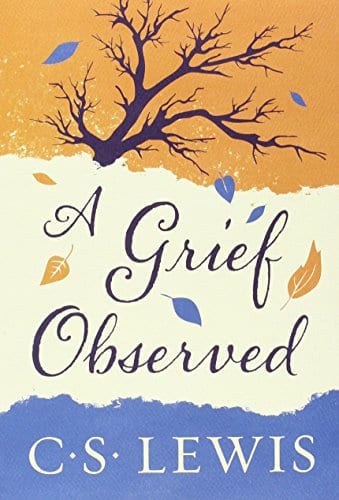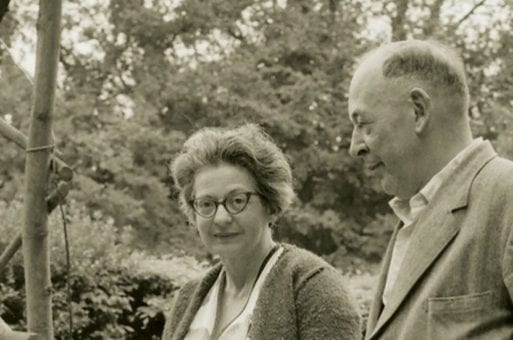 British boys don’t cry. At least, not openly.
British boys don’t cry. At least, not openly.
Suppressing one’s emotions was “the lesson I was most strongly taught,” admits C.S. Lewis in his journals, which are collectively titled “A Grief Observed.” After losing his wife to cancer, the “The Lion, the Witch, and the Wardrobe” author experienced a profound questioning of his faith and sense of self.
As one of the most important Christian writers of our time, the journals are a moving — albeit curious — addition to Lewis’s notably religious oeuvre. He confesses all of his frantic doubts, fears and fist-fights with God in a collection that offers a tragic, but captivating read. As a whole, the experience is very cathartic; due to its non-linear, journalistic structure, the book is an excellent companion for someone, religious or not, who is grieving the loss of a loved one.
Lewis’s words are so close to home that he first published A Grief Observed (1961) under a pseudonym, as he was hesitant to reveal his suffering to the public. “Talk to me about the truth of religion and I’ll listen gladly,” he writes in its beginning, “But don’t come talking to me about the consolations of religion or I shall suspect that you don’t understand. I have always been able to pray for the dead, and I still do, with some confidence. But when I try to pray for [my wife], I halt.” It is in this moment that Lewis wonders: how can we pray for something – for someone – who we feel has become a part of us? “A part of our own heart?”
“Lewis wonders: how can we pray for something – for someone – who we feel has become a part of us? “A part of our own heart?””
He writes of the blasée nature of grief, of the seldom-acknowledged banality of its despair. “No one ever told me about the laziness of [it],” he admits, “I yawn, I fidget, I smoke too much. [It’s] empty successiveness.” There is a numbness prevailing inside him more than anything, but one that is punctuated by moments of intense grief. At any moment, a “bath of self-pity ” rains down on him in a kind of emotional blitzkrieg.
One of Lewis’s greatest fears? Simply forgetting his wife.
Forgetting the way her profile looked, or the exact pitch of her voice – forgetting Truth itself as it is, inevitably, altered by time; he paralyzes himself with the fear that he’ll pervert or alter her through imagined memories. “Is that not happening already?” he asks, “Slowly, quietly, like snow-flakes—like the small flakes that come when it is going to snow all night—little flakes of me, my impressions, my selections, are settling down on the image of her.”

Author C.S. Lewis and his wife Joy Davidson
Credit: the gospel coalition.org
More and more, he feels that he’s making his wife into an untrustworthy mosaic.
Lewis’s love for his wife, Joy, also existed in the larger context of his love of God and faith in Christianity. So what can he make of his faith when God appears to have snatched Joy away from him with cancer? “There is no answer,” he says, “only the locked door, the iron curtain, the vacuum.” God, for Lewis, becomes a sort of “cosmic sadist.” In A Grief Observed, God is at times a King who gives and takes at an incomprehensible, cruel whim.
“…what is [Lewis] to make of his faith when God appears to have snatched Joy away from him with cancer?”
By the end of the collection, Lewis has examined and re-built his faith — but, as he says, with the strength of a house of cards. “At any moment,” he says, “my faith may crumble again.” But he also accepts the fact that the reasons behind his wife’s passing will never be known to him. Or to anyone. Joy’s death is a part of something bigger than himself, whether “something” includes God, or some other all-powerful enigma. There’s an odd sense of comfort in that enormity; it’s an ignorance we’re all a part of. It’s a white flag that can be waved to the universe that declares, “yes, she is gone. But she was here. And I continue to exist now, with her as a part of me.”

 “A Grief Observed” by C.S. Lewis
“A Grief Observed” by C.S. Lewis


 “Help Me, Helen”
“Help Me, Helen”
 Recovering Cremation Remains After the Los Angeles Fires
Recovering Cremation Remains After the Los Angeles Fires
 “As Tears Go By” by Marianne Faithfull
“As Tears Go By” by Marianne Faithfull














